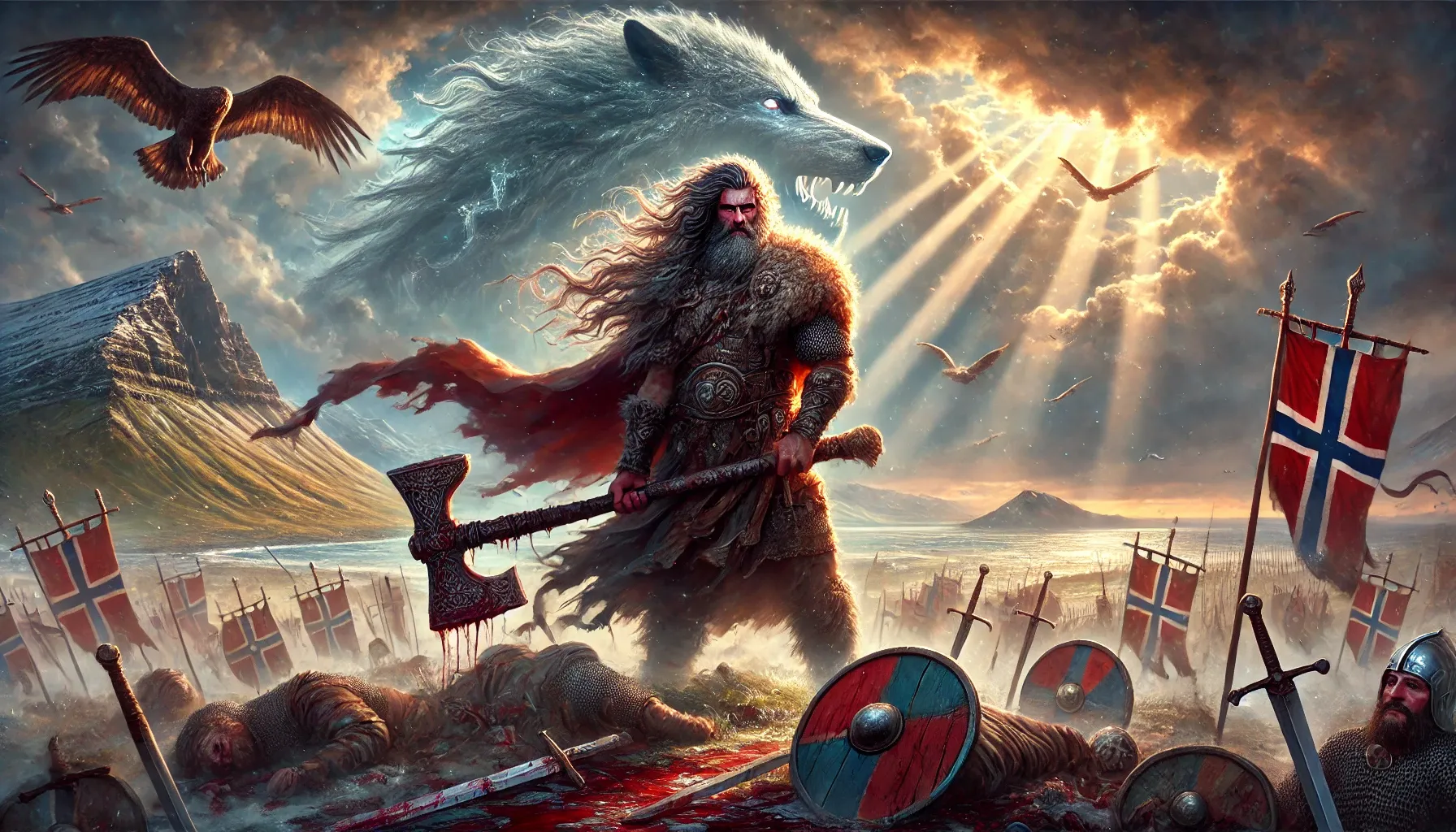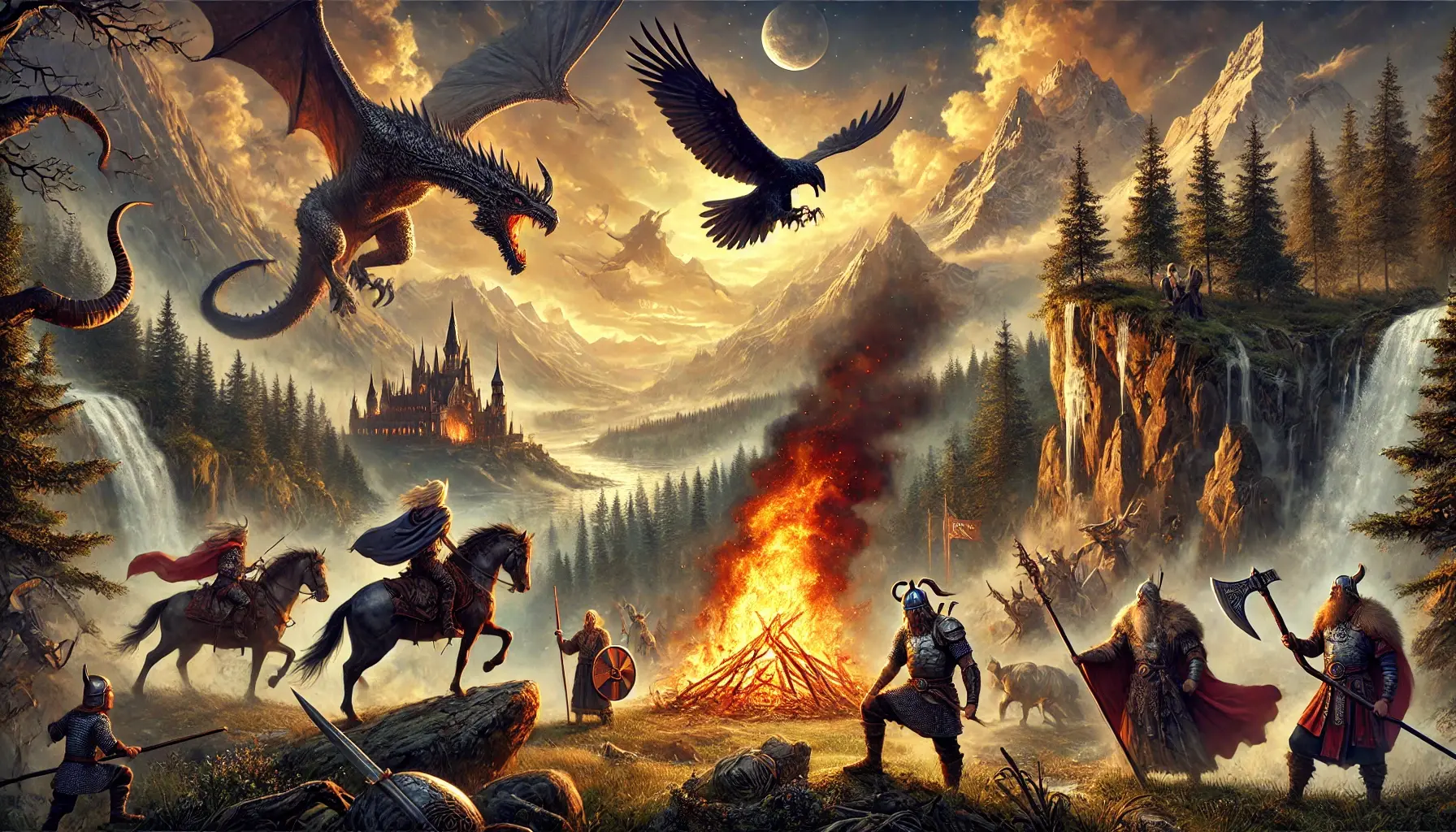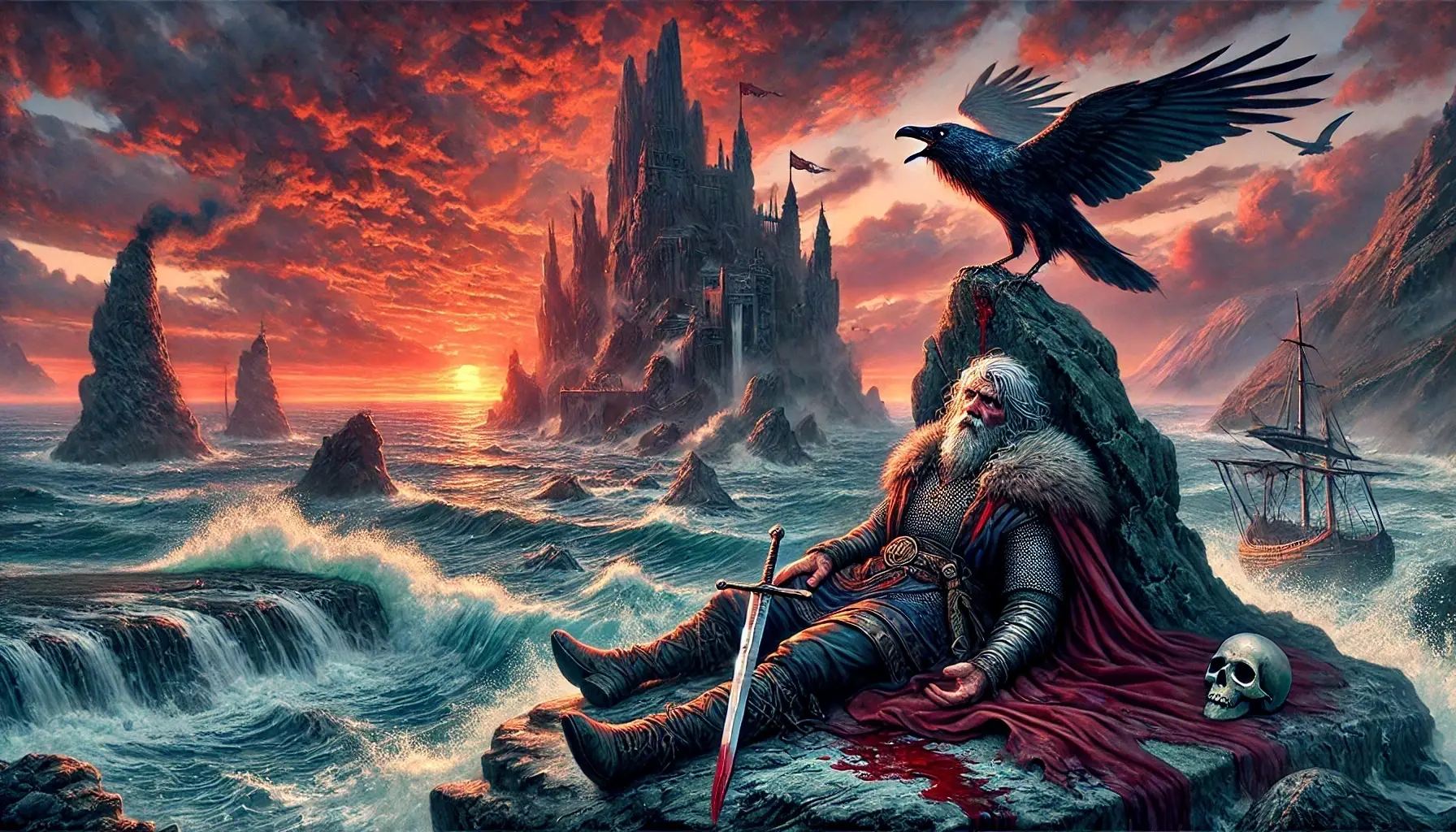The Birth of Egil: A Child of Contradictions
Egil Skallagrimsson came into the world under an ominous sky, his cry a thunderous wail that seemed to defy the quiet serenity of Iceland’s fjords. Born to Skallagrim Kveldulfsson and Bera Yngvarsdottir, Egil was the younger son in a family steeped in blood and poetry. From the start, he embodied dualities: a ferocious warrior with a poet’s soul, a man as feared for his axe as he was revered for his verses.
As a child, Egil showed a precocity that unsettled those around him. At three, he recited his first verse, a starkly beautiful ode to his own defiance. By seven, he killed a boy who had bested him in a game, an act that revealed his burgeoning ferocity. Skallagrim, his father, scorned the boy’s recklessness, yet Egil’s grandfather, Kveldulf, saw in him the spirit of their ancestors—a wolf in human form.
The Feud with Berg-Æsl
Egil’s youth was marked by an escalating feud with Berg-Æsl, a local chieftain. The spark was lit when Egil’s father refused to pay tribute, asserting his independence. Berg-Æsl’s retaliations were met with Skallagrim’s cold fury, but it was Egil who ignited the conflict into a blazing inferno. At the age of twelve, he joined his father in a raid on Berg-Æsl’s hall, killing his first man in combat.
The raid was a grotesque ballet of violence. Egil, wielding an axe that seemed almost too large for his small frame, cut down his foe with a fury that belied his years. The blood-soaked hall resounded with the clamor of steel and screams. That night, Egil composed a drapa—a lengthy, intricate poem—to commemorate the battle. The verses were savage yet hauntingly lyrical, echoing with the rhythm of the sea and the clang of swords.
Exile and Bloodshed
The feud with Berg-Æsl forced Egil’s family into exile. They fled to Norway, where they sought the protection of King Harald Fairhair. But Egil’s fiery temperament soon clashed with the court. He killed one of Harald’s retainers in a drunken brawl, prompting his family to flee once more, this time to the harsh, wind-lashed shores of Britain.
In Britain, Egil’s reputation as a warrior and poet grew. He fought in the service of King Æthelstan, leading Norse mercenaries against the Scots at the Battle of Brunanburh. Egil’s presence on the battlefield was elemental—his hulking frame and wild, unkempt hair giving him the appearance of a berserker possessed by the gods. Amidst the carnage, he composed verses that exalted the ferocity of war and lamented its cost. When the battle was won, King Æthelstan rewarded Egil with gold and land, but the restless skald soon abandoned these spoils, driven by an unquenchable thirst for adventure.
The Curse of Eirik Bloodaxe
Egil’s wanderings brought him into conflict with Eirik Bloodaxe, the exiled Norwegian king who ruled over Northumbria. The enmity between them boiled over when Egil killed one of Eirik’s sons in a duel. Captured and brought before the king, Egil’s death seemed certain. But instead of pleading for his life, he composed a scornful poem that mocked Eirik and extolled his own deeds. The audacity of Egil’s words stunned the court into silence.
Yet, it was not arrogance but the power of his poetry that saved him. Over the course of a single night, Egil crafted a skaldic masterpiece, the “Höfudlausn,” or “Head Ransom.” Each verse was a verbal jewel, its intricate kenning and flawless meter a testament to Egil’s genius. When dawn broke, Eirik, moved by the artistry of the poem, spared Egil’s life, though their hatred remained undiminished.
Grief and Redemption
As Egil aged, his exploits became tinged with tragedy. The deaths of his sons, Bödvar and Gunnar, shattered him. Bödvar’s drowning was particularly devastating. Egil’s grief was profound, plunging him into a darkness that no amount of battle or verse could dispel. Yet, it was in this abyss that Egil composed his greatest poem, the “Sonatorrek,” or “The Irreparable Loss.”
In “Sonatorrek,” Egil’s words flowed like the icy waters of a glacier-fed river. He lamented the fragility of life, the cruelty of fate, and the inexorable pull of death. But amidst the sorrow, there was a fierce resolve to honor his sons through his poetry. The verses were stark and unadorned, their simplicity a stark contrast to the elaborate skaldic traditions. They resonated with a universal truth that transcended the personal, touching the hearts of all who heard them.
The Final Years
In his later years, Egil returned to Iceland, where he lived as a farmer, his days of raiding and feuding behind him. Yet, even in this quieter life, his defiant spirit remained. He refused to bow to local chieftains, maintaining his independence to the end. Blind and frail, Egil continued to compose poetry, his mind as sharp as ever despite his failing body.
One winter evening, as a storm raged outside, Egil sat by the fire, reciting verses from memory. His voice, though weakened by age, carried the weight of a lifetime—a symphony of triumphs and tragedies, of bloodshed and beauty. As the flames flickered, casting shadows on the walls, Egil’s final poem took shape, a meditation on the fleeting nature of existence and the enduring power of the spoken word.
The Wolf’s Shadow
In his final days, Egil’s mind turned often to his grandfather Kveldulf, the “Evening Wolf.” It was said that Kveldulf’s spirit walked the land in the form of a great wolf, guarding the family line. On the night of Egil’s death, villagers claimed to hear howling in the distance, a sound both mournful and triumphant.
When Egil’s body was laid to rest, his face was serene, a faint smile lingering on his lips. The villagers whispered of the wolf that had been seen prowling near the grave, its silver eyes glinting in the moonlight. They said it paused only once, to lift its head and let out a long, echoing howl before vanishing into the darkness.
The legacy of Egil Skallagrimsson endured in his poems, preserved by the skalds who came after him. His verses, etched into the annals of Icelandic lore, spoke of a man who was both beast and bard, a warrior and a poet, bound by the inexorable tide of fate. And in the howling of the wolf, one could still hear the echoes of his indomitable spirit—a defiant cry against the silence of death.
In the end, it was not Egil’s axe but his words that proved immortal, carving his name into the heart of history. The last verse of his life lingered in the air like frost on a winter’s morning, a testament to the enduring power of poetry to defy even the void.



